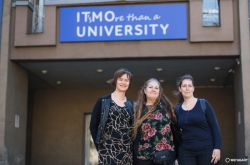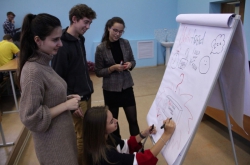About Business Model Canvas
The Business Model Canvas is a strategic management tool that provides a template for documenting business ideas, analyzing them and identifying their strengths and weaknesses. In its essence, the method, which was invented by the Swiss business analyst Alexander Osterwalder, can be presented as a common algorithm for solving the smorgasbord of single-type tasks involved in the creation of business models.
The model consists of nine blocks, which can be divided into four larger groups: Infrastructure, Offering, Customers, and Finances. Each of the blocks describes a unit of an organization’s business model, namely its key partners, resources and activities, offerings and value propositions, relationship with customers and customer segments, channels of distribution, cost structures and sources of revenue.
The Business Model Canvas served as a foundation for another business tool: the lean startup model. Though the latter is more relevant to projects on the earlier stages of their existence, the two techniques serve the same purpose: the facilitation of strategic management and the identification of priority areas through visual representation of business models.
“The main idea behind the tool is visualization. Apart from its other benefits, it can prove particularly useful for international teams which face the challenge of finding a common working language between the representatives of different countries and cultures. What’s more, having such a visual model at hand means that you no longer have to spend an enormous amount of time and effort on ploughing through huge reports. Of course, once you arrive at the business plan formation stage, there’s no getting around official documents, but at these first stages the Business Model Canvas can be a massive help in allowing you to present your ideas quickly, clearly and effectively. And it has to be said that it works equally well for all types of ideas,” points out Tiina Wickman-Viitala, a lecturer at TAMK.
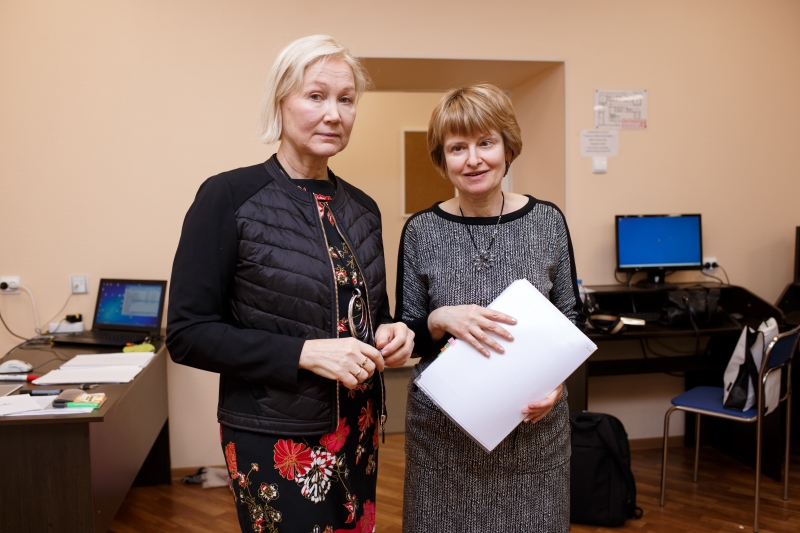
Intensive workshop at ITMO University
The first workshop exploring the applications of the model took place last year within the framework of the FIRST+ Russian-Finnish student and teacher mobility program. The 2019 workshop was once again hosted by ITMO University in cooperation with Tampere University of Applied Sciences, though this time as part of the Erasmus+ program.
Among the participants were 28 students of TAMK and ITMO University, all coming from different backgrounds from technological management and innovations to chemistry, biotechnologies and industrial ecology.
Such interdisciplinarity became one of the main defining features of this year’s workshop, says Irina Sergeeva, professor at the Faculty of Technological Management and Innovations. In other changes to the format, this year the students were encouraged to not only work on cases provided by other companies but also bring their own ideas to the table and work on them as part of interdisciplinary Russian-Finnish teams. According to Taina Matis, a lecturer at TAMK, this factor contributes to better engagement on part of the students, who have been proven to be more motivated when working on their own initiatives.
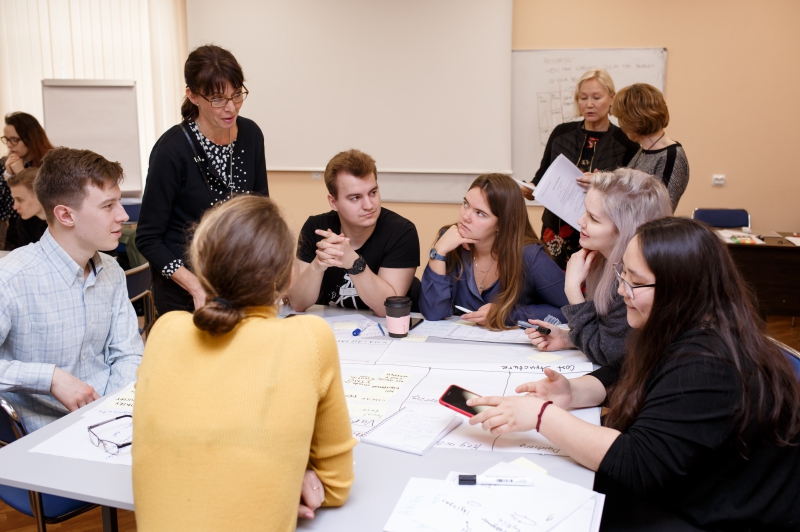
“What we required from this year’s participants was having a good command of English and their own business idea,” adds Irina Sergeeva. “On the first day, we started by dividing the students into five mixed Russian-Finnish teams of five-six people each. Their task was to master the Business Model Canvas, apply it to the cases offered, prepare a presentation and defend it before a panel of experts, all in the course of three days of intensive teamwork.”
Ideas proposed by interdisciplinary teams
One of the workshop’s participants, Andrey Desyatnikov, suggested a case relating to the production of so-called raw chocolate. The main advantage of this product is that it suits people with lactose intolerance, as well as healthy food aficionados and athletes in need of an energy boost for their training. The creation of this kind of chocolate doesn’t require any special equipment or factory setting and can be DIY-ed at home. The latter was exactly what Andrey’s team wanted to achieve with their business model.
“I got interested in participating in this workshop because I want to launch my own business. Upping its appeal was the fact that participation was free, and also that it took place in the walls of my home university, so I just needed to come in on a separate day and work on real-life cases,” shares Andrey Desyatnikov, a student at the Faculty of Food Biotechnologies and Engineering. “Workshops like this also give you an opportunity to learn more about marketing specifics of other countries. For example, we were discussing the idea of selling online courses on how to make chocolate at home, and I suggested that we alter our marketing strategy as older people probably wouldn’t be buying them via Instagram. But it turned out that in Finland, this social media is popular among the elderly.”
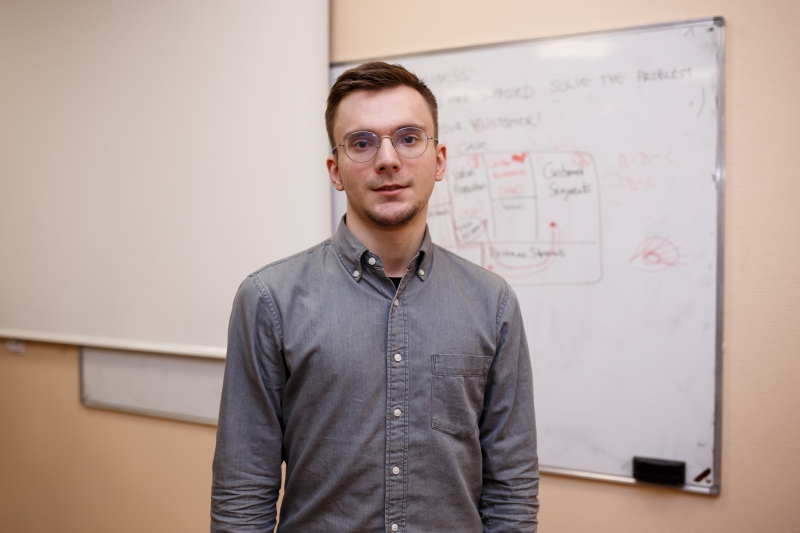
The team made of students of the ChemBio cluster (SCAMT laboratory) put forward a case developed by the laboratory of microbiology. A test system aiming to solve the problem of detection of bacterial viruses in fermented dairy products even in conditions of large-scale dairy factories, it would allow to simplify and accelerate the production process. That is because with its help, the testing can be done directly at the factories, leaving out the additional step of taking the starter culture to a special lab.
“SCAMT has an industrial laboratory that develops prototypes and end products which we would like to launch on the market. At this workshop, we wanted to explore the tools that would allow us to do this in the most effective way possible. In my opinion, the Business Model Canvas presents a great solution to fulfil our aspiration,” comments Alexandra Lebedeva, a Master’s student at the ChemBio cluster.
Other ideas presented at the workshop referred to the processing of recycled materials, including paper, glass and food waste.
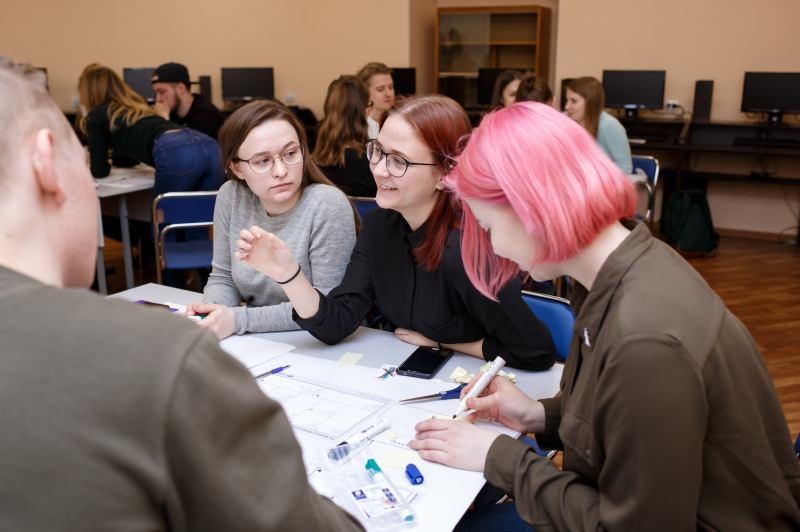
Prospects
“This workshop is an opportunity for students to expand their skill set. Apart from learning to use the Business Model Canvas in their work, they can practice working with business ideas, presenting their projects in English, building effective communication with representatives of other cultures, and asking the questions that really matter. The way I see it, the Business Model Canvas is not only a business tool but also a great technique that can be used for all types of management at all types of companies,” highlights Tiina Wickman-Viitala.
Going forward, Tampere University of Applied Science and ITMO University plan to continue cooperating on the organization of joint workshops. To that end, the Finnish university has already applied for a grant of the FIRST+ mobility program. As previously mentioned, this is a Russian-Finnish student and teacher mobility program that encourages network partnerships between higher education institutions of Russia and Finland. In line with this commitment, the program supports student and teacher mobility between the universities of the two countries, as well as the conduct of joint intensive workshops in Russia.


